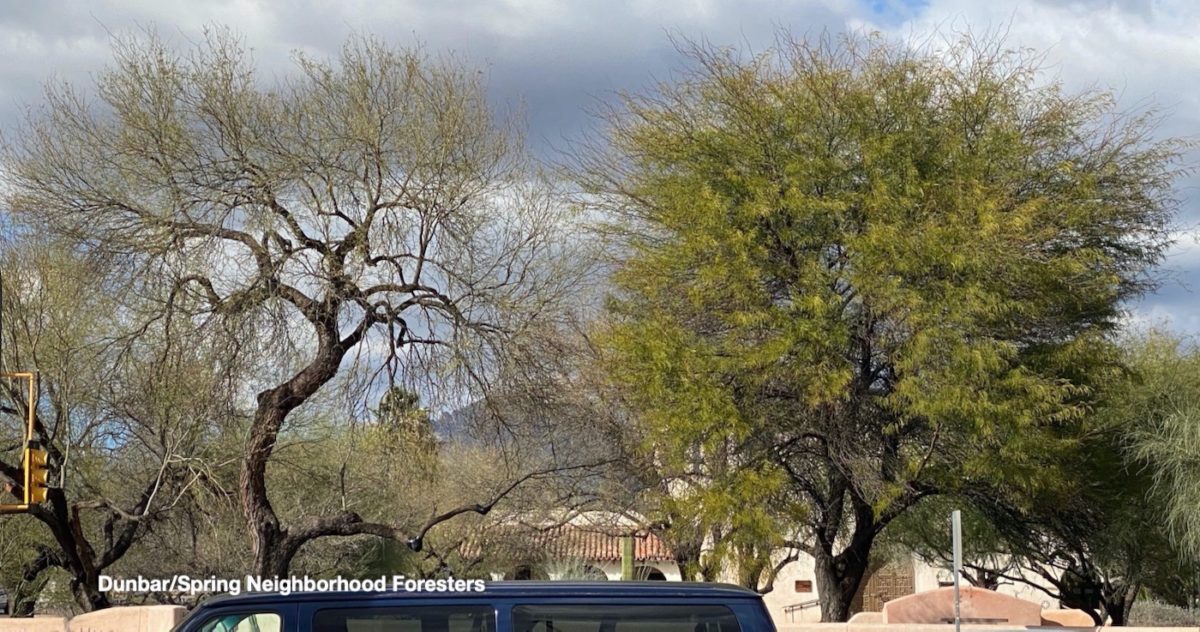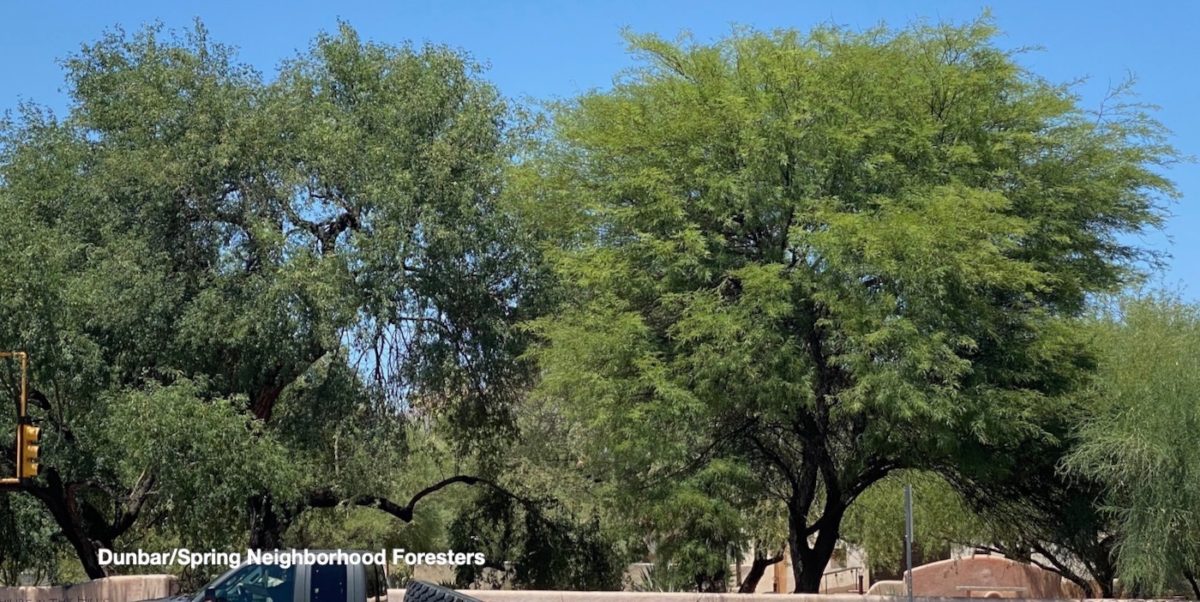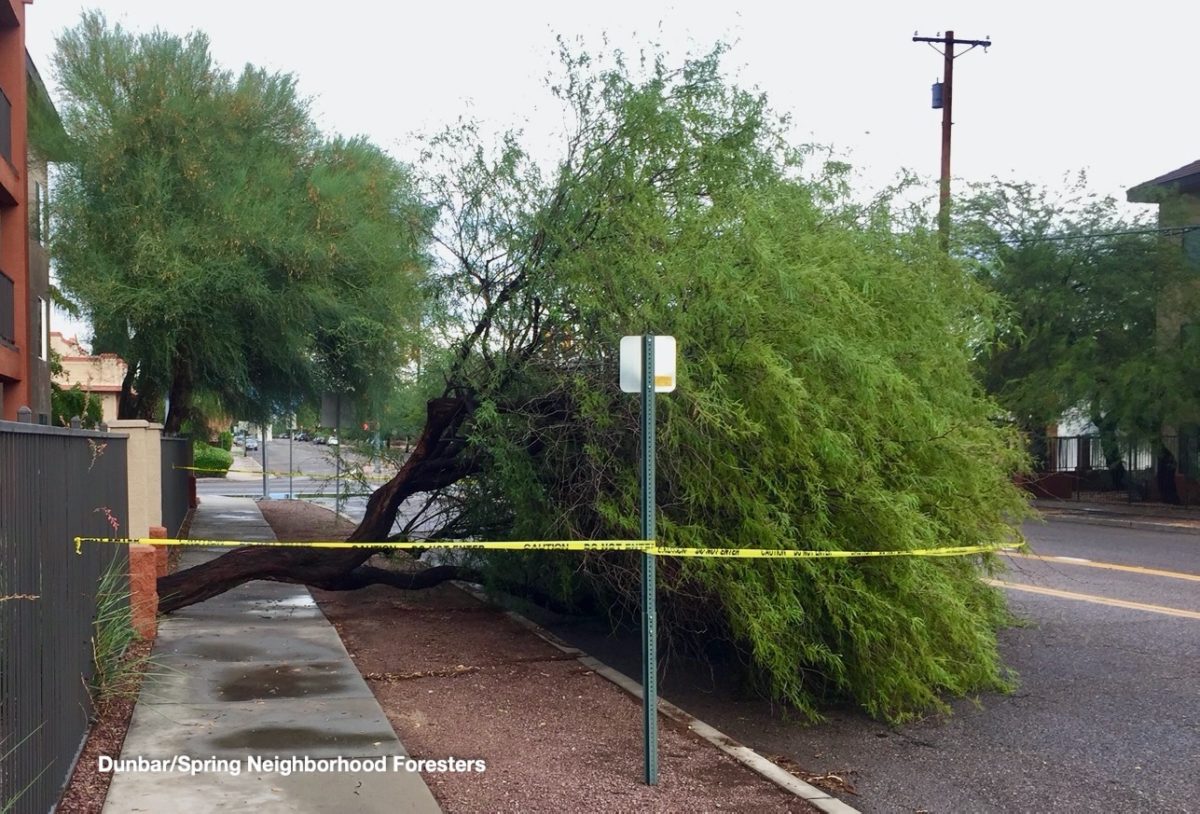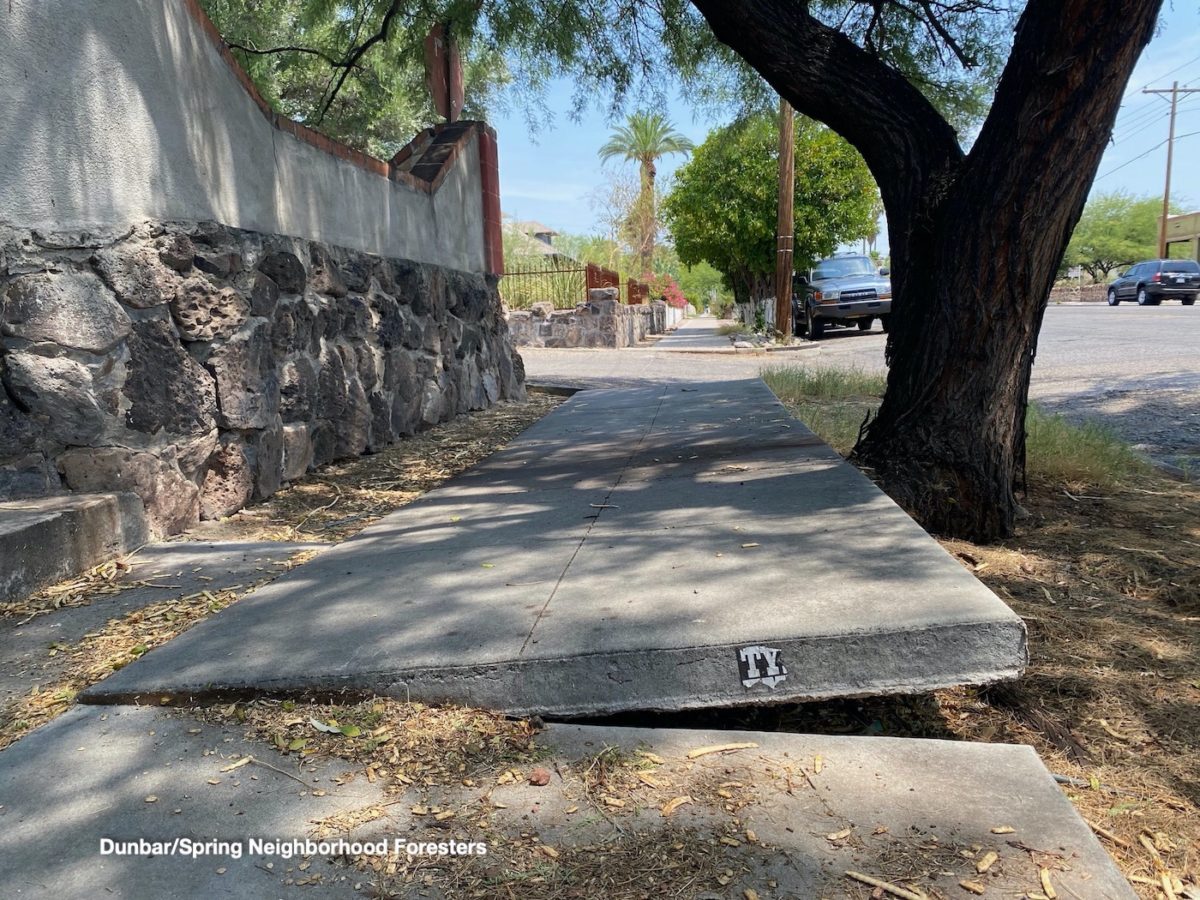The following is information for southern Arizona and northern Sonora.

Winter-deciduous native velvet mesquite on left, mostly evergreen non-native mesquite on right.
The native velvet mesquite (Prosopis velutina) is a superior tree around gardens, buildings, and pathways since it lets in more winter light; and its roots do not heave foundations or pavement.
Photo: Brad Lancaster

Native velvet mesquite tree on left, non-native mesquite tree on right.
Photo: Brad Lancaster

Such non-native South-American hybrid or “Chilean mesquites” are very prone to such blow over or “windthrow”, and their roots tend to heave adjoining pavement.
Native velvet mesquite does not have these negative characteristics.
Photo: Brad Lancaster

Native velvet mesquite tree roots typically do not do this.
Photo: Brad Lancaster
Thanks to Greg Corman for permission to reprint the following article from his July 2009 newsletter. Scroll to the bottom of this page for his contact info, or click here to visit his website.
Mesquites are popular choices for landscaping in Southern Arizona and the default choice seems to be the South American hybrid version often called “Chilean mesquite”. It is a favorite with contractors and many homeowners because it is cheap, grows quickly, and has no thorns. The foliage is pretty much evergreen. It sounds like a perfect landscape tree, but in this case, beauty is only bark deep and a better choice for most sites is our very own Velvet mesquite. Here are some side by side comparisons of Chilean mesquite and Velvet mesquite.
Chilean: Usually shallow rooted and/or surrounded by surface roots that heave sidewalks and other infrastructure.
Velvet: Deep rooted. Rarely shows surface roots and not often a cause of heaving for hardscape.
Chilean: Windthrow during periods of high wind is common. The most frequently blown over tree during the monsoon.
Velvet: Windthrow very rare on established specimens.
Chilean: Often exhibits a growth defect called ‘included bark’ that can lead to structural damage in mature trees.
Velvet: ‘Included bark’ is rare in Velvet mesquite.
Chilean: Requires monthly irrigation to thrive in typical urban conditions.
Velvet: Thrives on rainfall alone when established in SE Arizona. It will need irrigation in most Phoenix landscapes.
Chilean: Hybridizing with Velvet mesquites and altering the gene pool of the native species.
Velvet: Native. No problem with hybridization.
Chilean: Anecdotal evidence from bird watchers suggests few bird species use Chileans for foraging.
Velvet: Foraged heavily by warblers, verdins, wrens and many other bird species who are looking for insects to eat.
Both species of mesquite are handsome landscape trees, but given the drawbacks of the Chilean version, it is preferable to choose the native for landscaping here. It is considered slower growing, but still grows very quickly and develops a more stable root system. Desert Survivors Nursery on Starr Pass Boulevard, Spadefoot Nursery, and Night hawks Native Plant Nursery procure their seeds for Velvet mesquite from distant areas where hybridization is not a problem. [Mesquites of different species readily hybridize with one another via their cross-pollinated offspring]. You can count on these local native plant nursery’s native mesquites to grow true to form.

